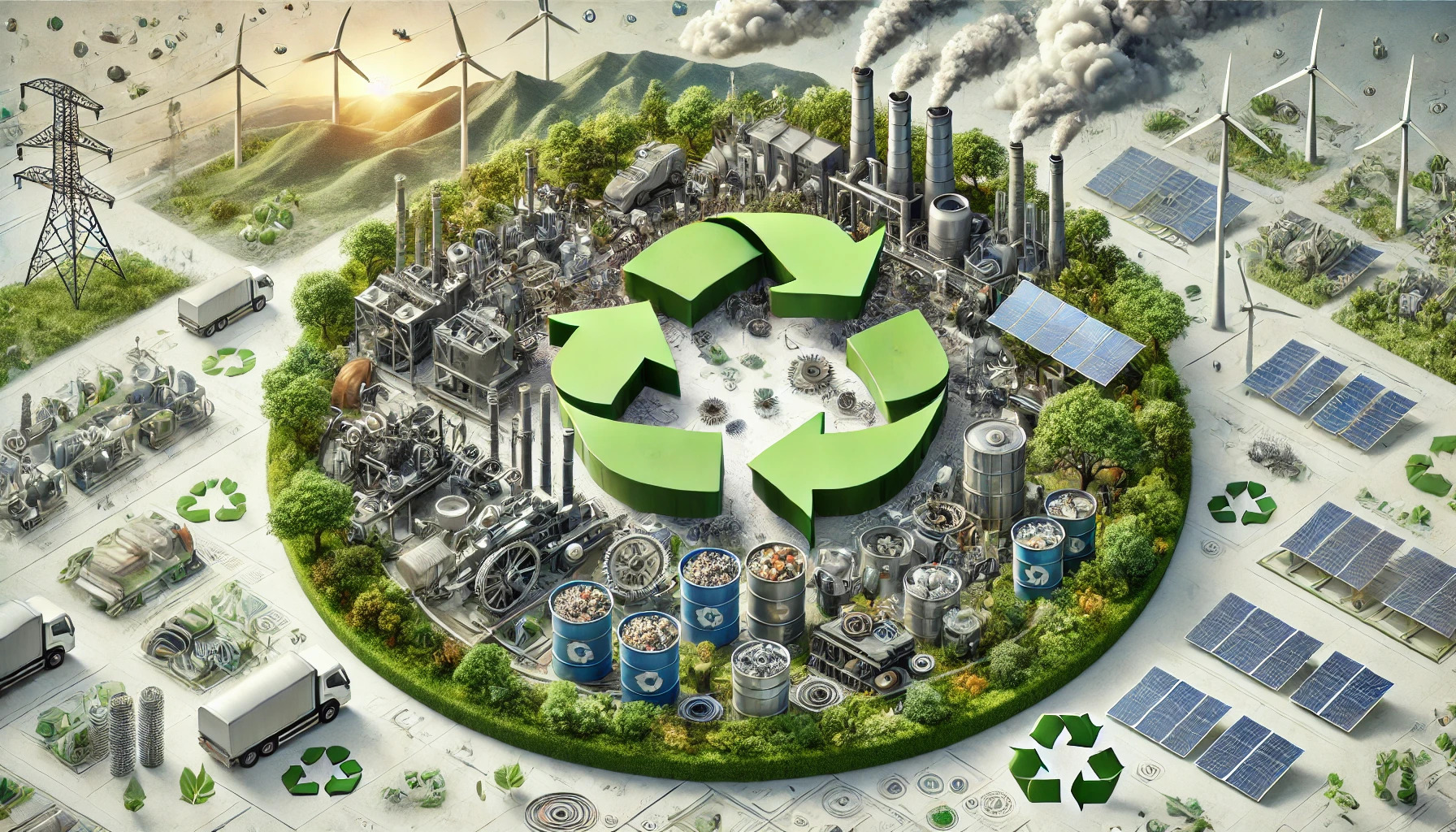With global resource consumption at unsustainable levels, chemical engineers are leading the charge toward a balanced planet through innovative, sustainable solutions and responsible practices.

Responsible Consumption
As a chemical engineer, I perceive our planet as a closed system with finite resources and remarkable self-regeneration capabilities. This viewpoint is essential for understanding the principles of mass and energy balance that govern our interactions with the environment. The urgent need for responsible consumption and sustainable practices has never been more pressing, especially given global population growth and the increasing resource demand.
Earth operates within a delicate balance, where natural processes and human activities interact in complex ways. According to the United Nations, the global population is projected to reach approximately 9.7 billion by 2050. This significant increase will place immense pressure on our planet’s resources, necessitating reevaluating how we consume and manage these resources. Our current trajectory is simply unsustainable.
Mass and Energy Balance
The principles of mass and energy balance are fundamental in chemical engineering. They remind us that matter cannot be created or destroyed; it can only change forms. This principle underscores the importance of recycling and reusing materials to minimise waste. For instance, the circular economy model promotes designing products for longevity, repairability, and recyclability, ensuring that materials are used for as long as possible.
Currently, we are consuming resources at an alarming rate. The Global Footprint Network reports that humanity is using the equivalent of 1.7 Earths to sustain its current lifestyle. This overshoot means we are depleting natural resources faster than they can regenerate, leading to dire consequences such as deforestation, loss of biodiversity, and climate change.
Addressing this imbalance requires a multi-faceted approach that includes technological innovation, policy reform, and individual responsibility. As chemical engineers, we have a unique opportunity to drive this change through sustainable industry practices.
Local Solutions for a Global Challenge
While global strategies are essential, regional solutions tailored to local contexts are equally important. For example, implementing sustainable farming practices can significantly reduce resource consumption in areas heavily reliant on agriculture. Techniques such as precision agriculture utilise data analytics to optimise water and fertiliser use, minimising waste while maximising yield.
Promoting public transportation and electric vehicles in urban areas can alleviate traffic congestion and reduce emissions. According to the International Energy Agency (IEA), transport accounts for nearly 24% of global CO2 emissions. By adopting cleaner technologies—such as hybrid vehicles—and improving fuel efficiency through better route management and vehicle maintenance, we can significantly reduce our carbon footprint while enhancing urban mobility.
Sustainable Consumption
One practical example of responsible consumption is the growing trend of individuals bringing their packaging containers when shopping or dining out. This practice has gained traction in Southeast Asia, particularly Malaysia, Indonesia, and Thailand, where banana leaves have long been used as a natural, eco-friendly food packaging solution. These biodegradable leaves enhance the flavour and presentation of traditional dishes, help preserve freshness and impart a unique aroma to the food.
Many grocery stores worldwide—such as Whole Foods in the United States and various independent supermarkets across Europe—encourage customers to use reusable containers instead of single-use plastics. Restaurants like Pret a Manger in the UK also offer discounts to customers who bring their cups or containers for takeaway meals. Such initiatives are now emerging in Sarawak and Malaysia as well. This practice not only reduces waste but also aligns with the principles of the circular economy by extending the lifecycle of materials. By reusing containers, consumers actively participate in minimising the demand for new resources and reducing landfill contributions.
While systemic changes are crucial, the power of individual actions plays a significant role in achieving a balanced planet. Each person can contribute by adopting more sustainable consumption habits—reducing waste, choosing renewable energy sources, and supporting local economies.
Education as the Catalyst for Change
Education is key to fostering a culture of sustainability, equipping individuals with the knowledge and skills necessary to address pressing environmental challenges. In Malaysia, integrating environmental education into school curriculums and community initiatives is essential for raising awareness and empowering citizens to take meaningful action toward sustainable practices.
In recent years, Malaysia has made significant strides in promoting environmental education across various levels of formal and informal education. For instance, the Eco-Schools programme, introduced by WWF-Malaysia, has engaged around 180 primary and secondary schools since its inception. This initiative encourages schools to implement sustainability initiatives, allowing students to participate actively in projects that promote environmental stewardship. By 2025, the Green Growth Asia Foundation will expand this programme to 1,000 eco-schools nationwide.
At Swinburne University of Technology Sarawak Campus, we emphasise educating future engineers about sustainable practices and responsible consumption. By instilling these values early on, we empower the next generation to make informed decisions that benefit society and the environment.
In conclusion, achieving a balanced planet requires collective action from governments, industries, and individuals. As a chemical engineer committed to sustainable development, we must leverage our expertise to create innovative solutions that address resource consumption challenges. The time for action is now; together, we can create a world where future generations inherit a healthy and balanced planet.
Ir. Dr. Chew Jiuan Jing is the Deputy Head of School, School of Engineering and Science and contributes to the Chemical Engineering program in Swinburne Sarawak. Dr Chew is contactable at [email protected]

